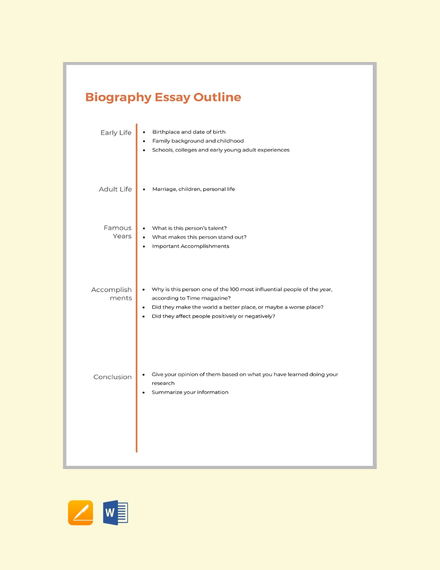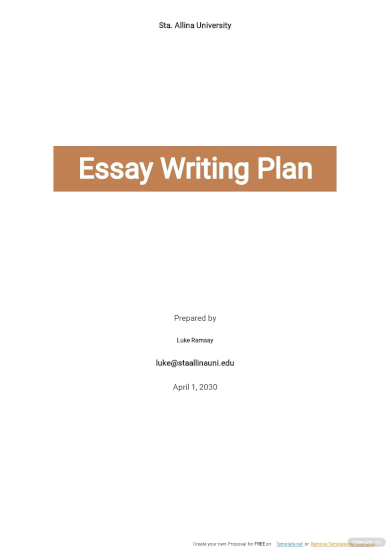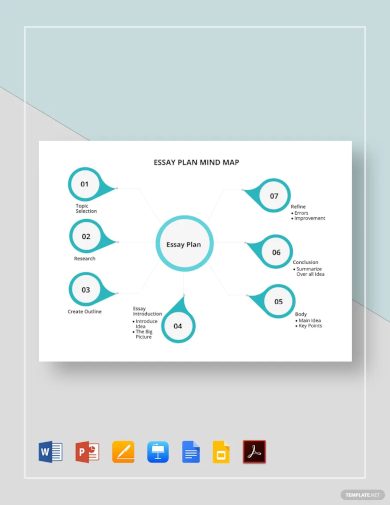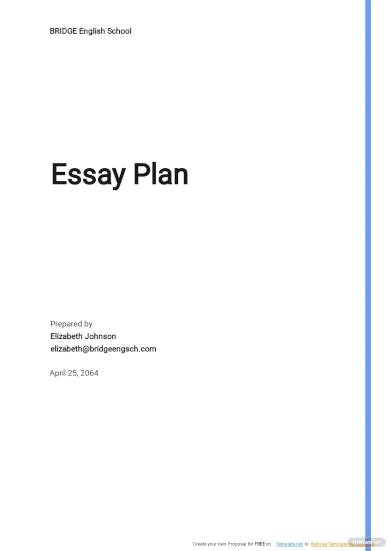26+ Essay Examples to Download
Writing essays is a powerful way to express thoughts, share knowledge, and showcase creativity. A free essay is an open platform where writers can explore any topic of their choice without restrictions. It allows for creativity and originality, encouraging writers to think critically and present their ideas in a unique way. Whether it’s a personal narrative, an argumentative piece, or a descriptive exploration, free essays provide an opportunity to engage readers with fresh perspectives. With well-designed essay templates, writers can save time and ensure their work is logically organized.
What is Free Essay?
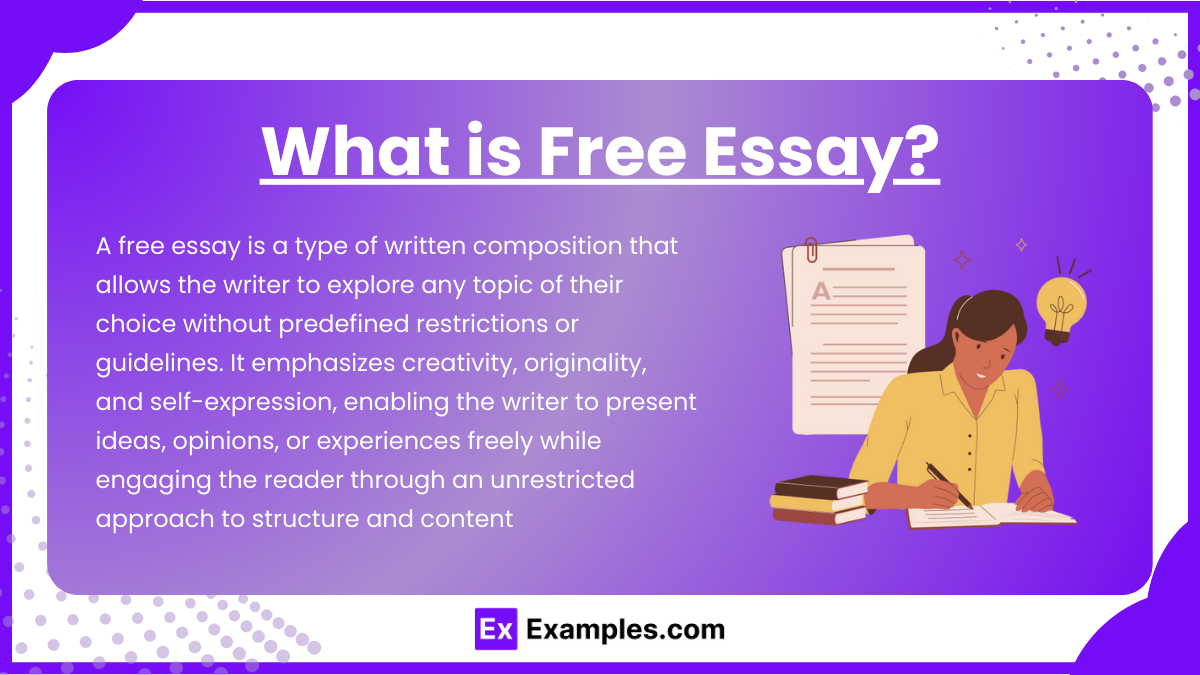
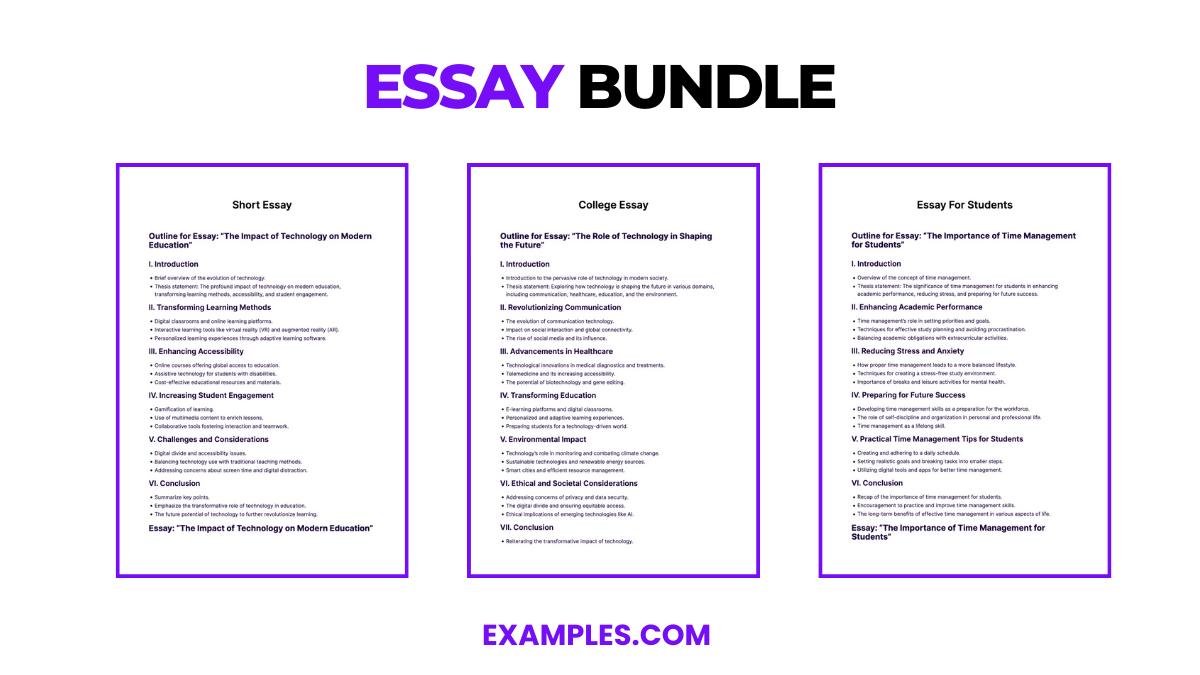
Essay Format
Title
A clear and concise title that reflects the essay’s main idea.
Introduction
Start with a hook to grab the reader’s attention, such as a question, quote, or interesting fact. Provide background information or context for the topic and end with a thesis statement that outlines the main argument or purpose of the essay.
Body Paragraphs
Introduce the first main point or argument with a topic sentence. Provide evidence, examples, or explanations to support the point, and conclude the paragraph by linking it back to the thesis statement. For additional points or arguments, follow the same structure, ensuring each paragraph focuses on one main idea. Use transitions to maintain a smooth flow between paragraphs.
Conclusion
Summarize the main points discussed in the essay. Reinforce the thesis statement without introducing new information. End with a final thought, call to action, or insight to leave a lasting impression.
References/Bibliography
Include a list of sources cited in the essay, formatted according to the required citation style (e.g., APA, MLA, Chicago). This section is only necessary if the essay uses external references.
Short Essay Example
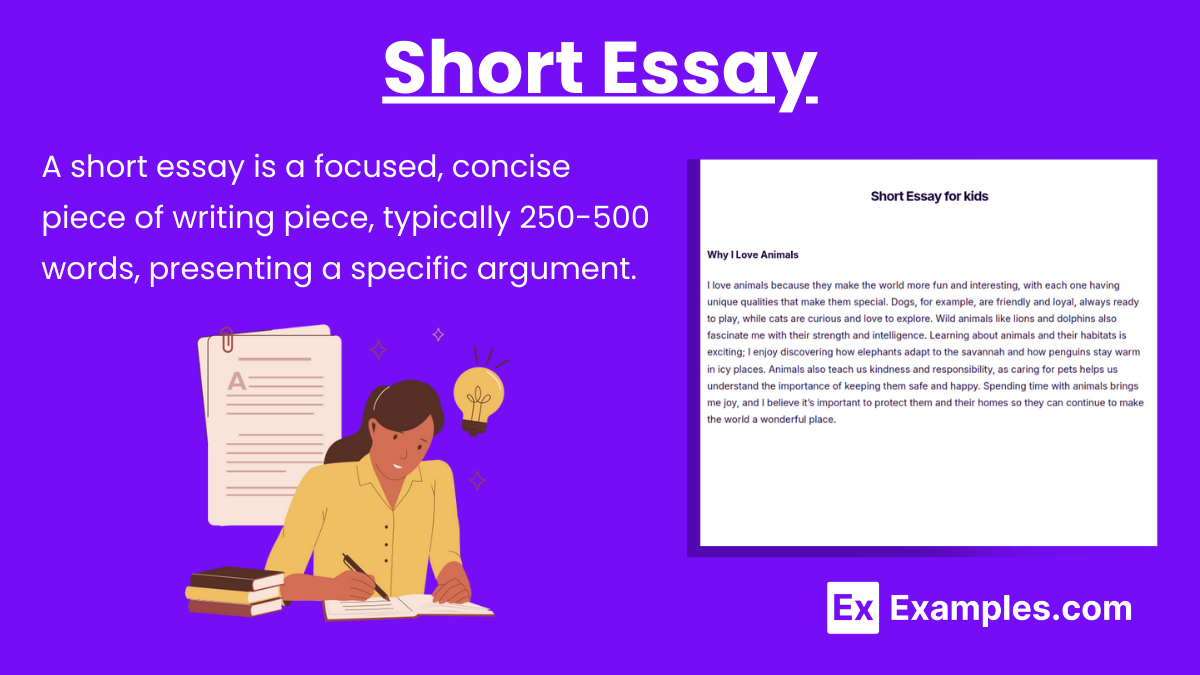
College Essay
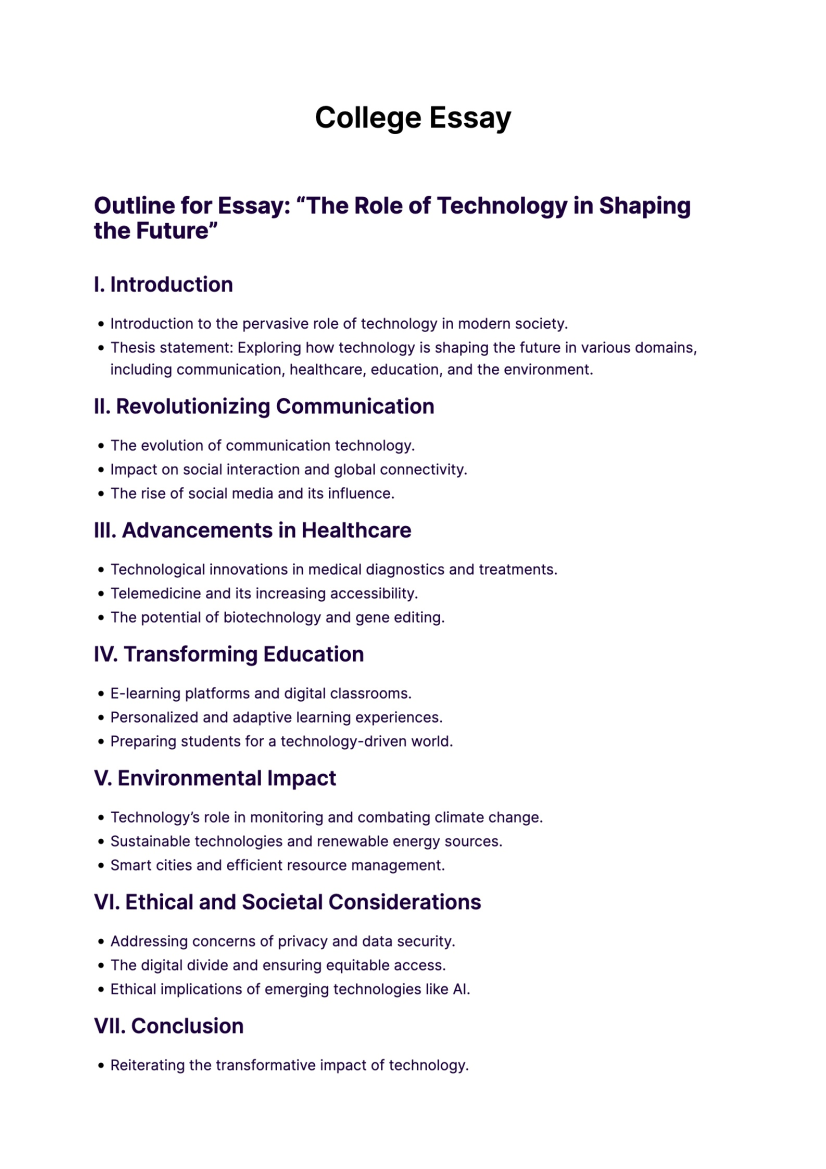
Essay For Students
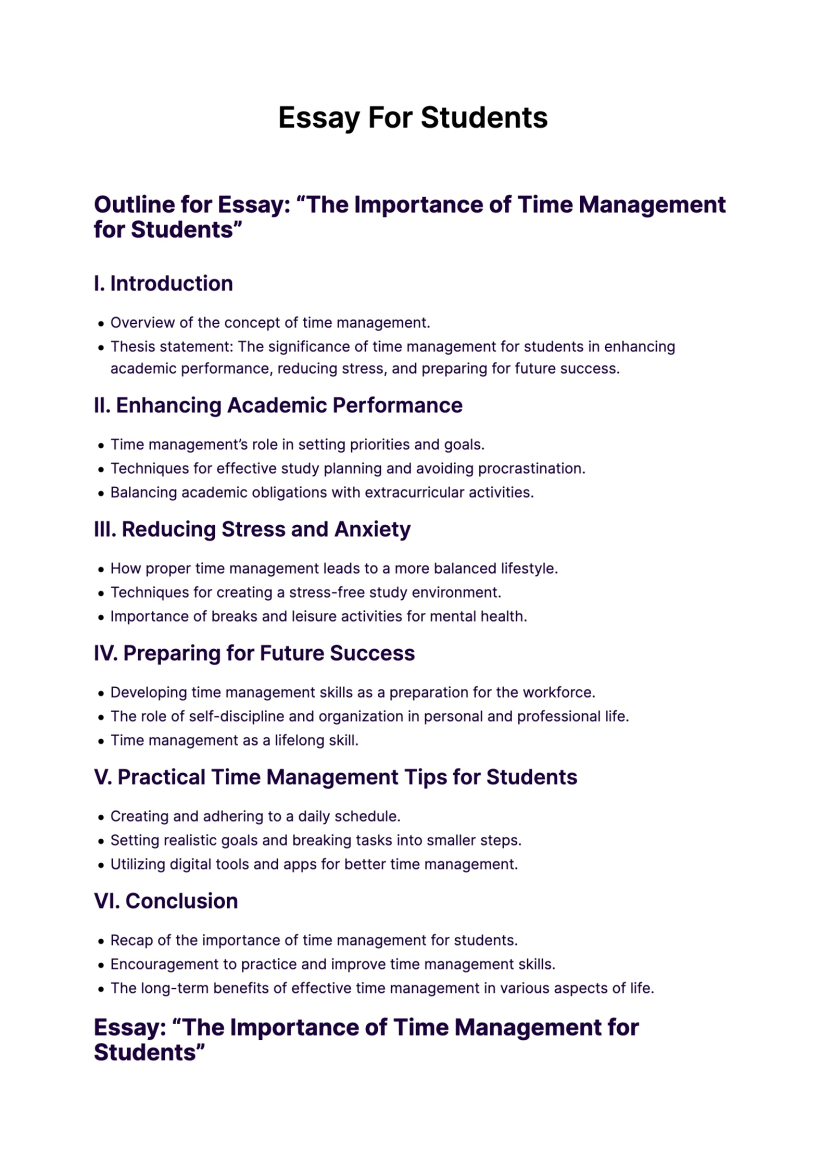
Free Biography Essay Outline Format Template
Free Essay Writing Plan Template
Free Essay Plan Mind Map Template
Free Simple Essay Plan Template
Sample Illustration
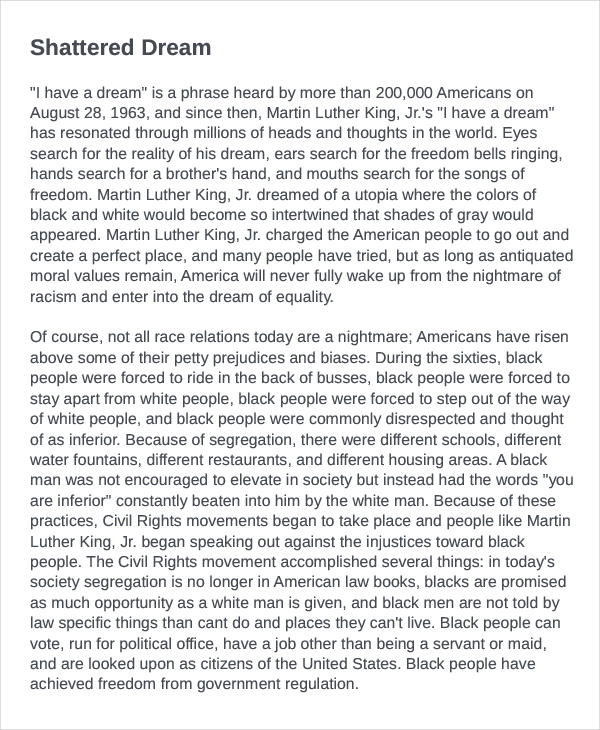
Reflective Essay
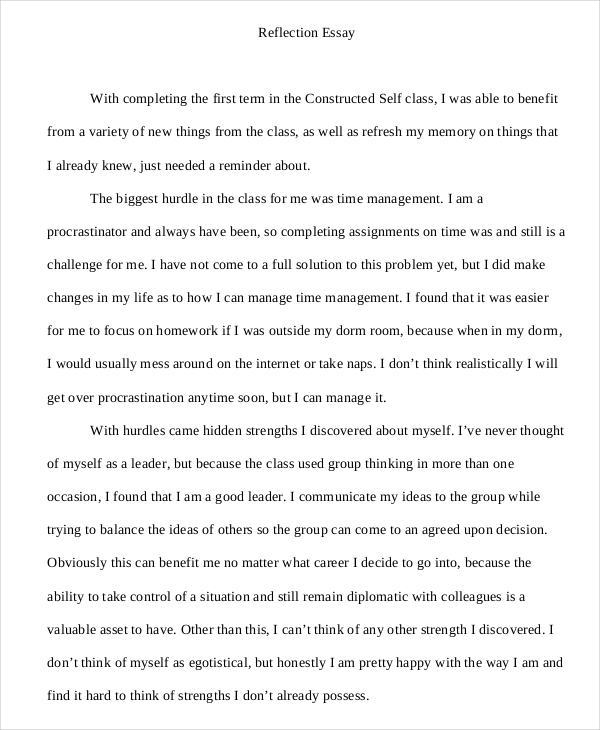
Autobiography Example
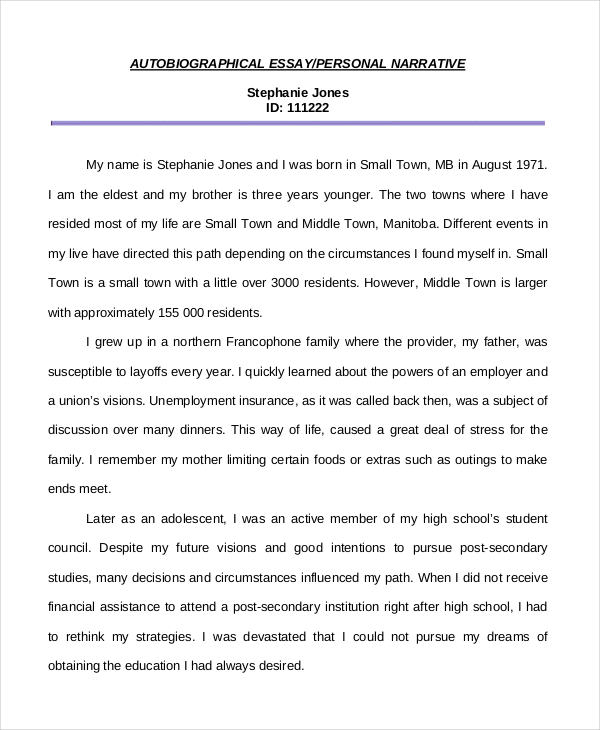
Sample Descriptive
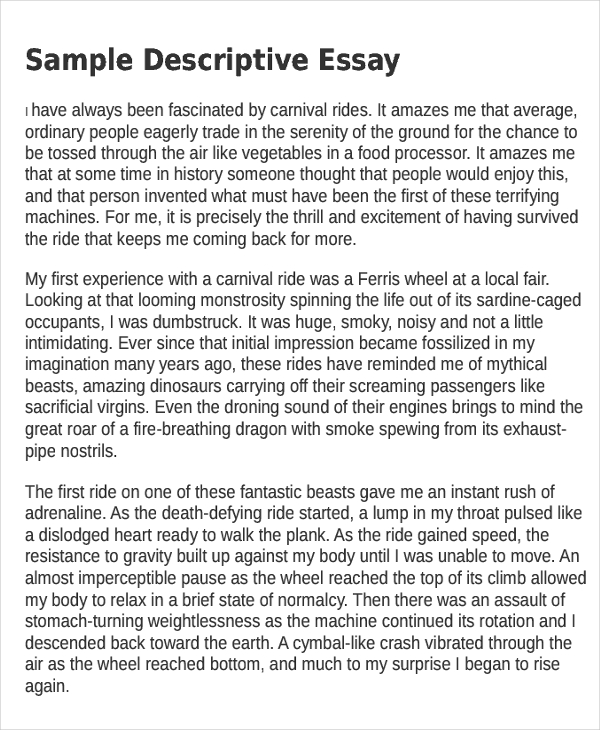
Free Argumentative
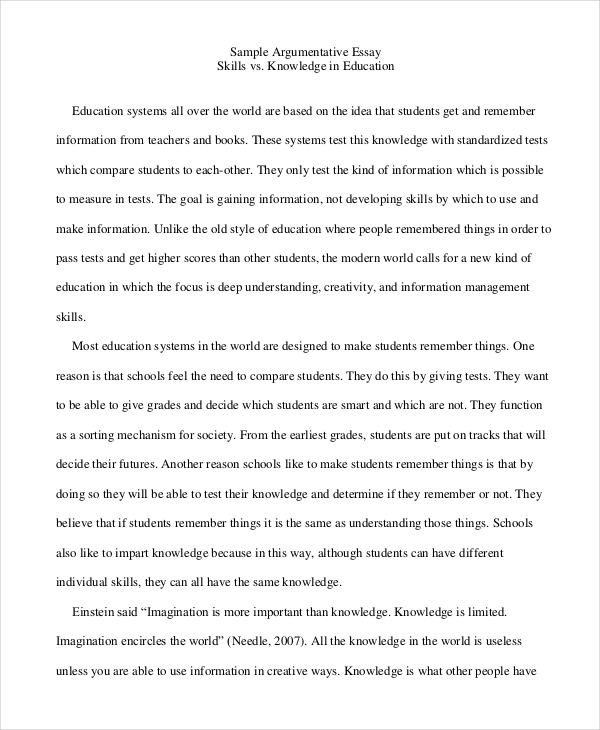
Observation Essay
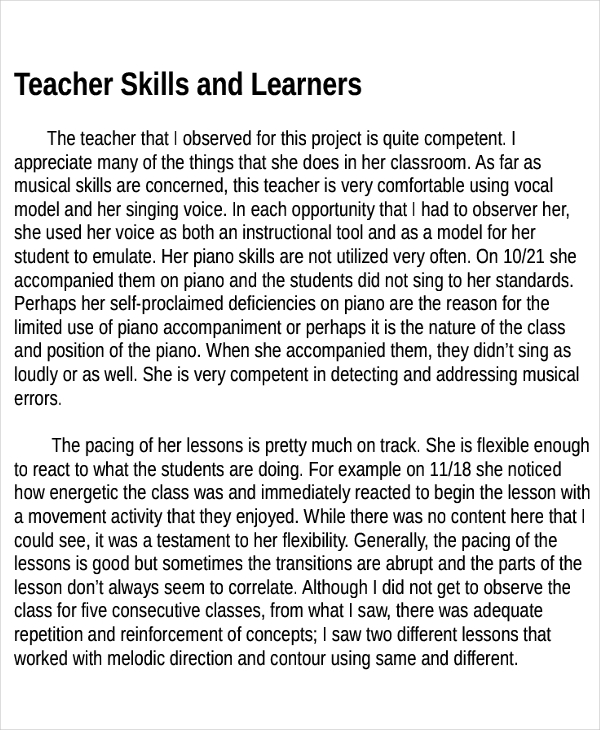
Free Response Sample
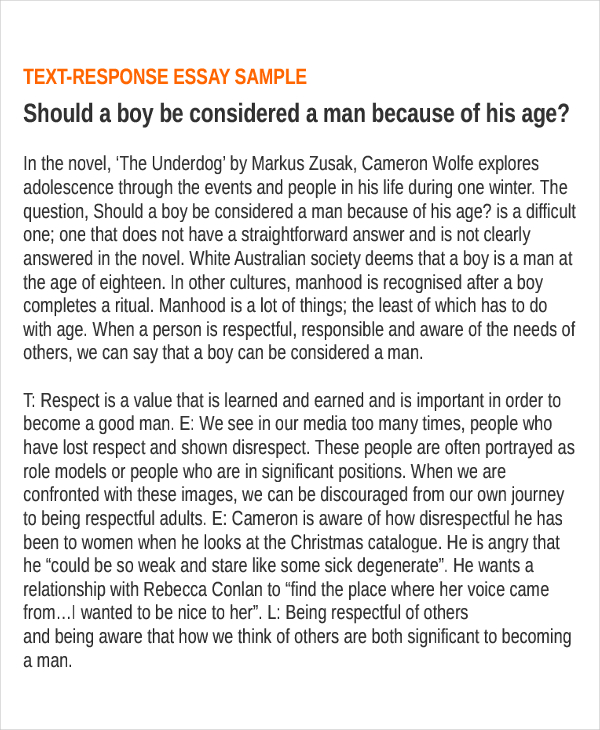
Narrative Essay
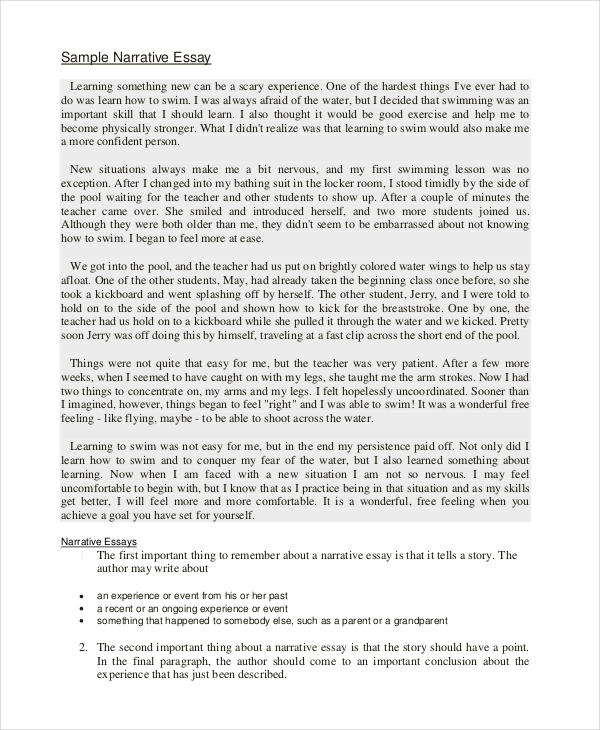
Free Service Example
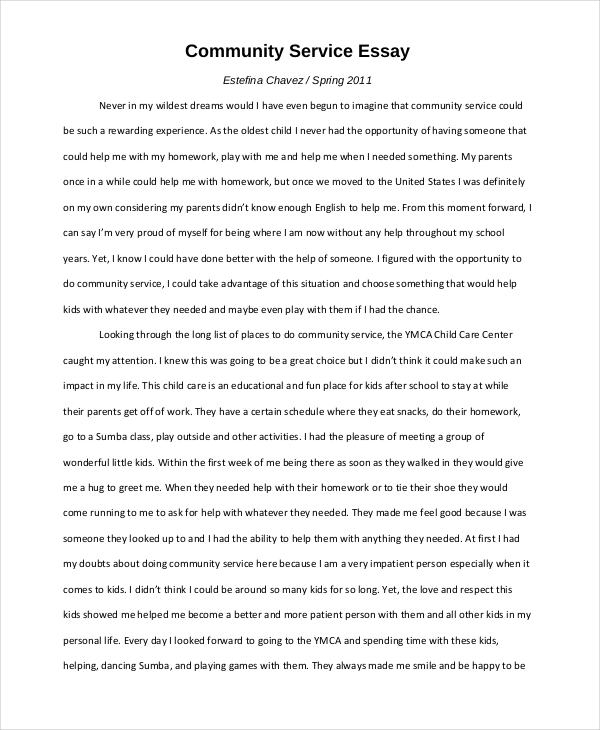
Free Personal

Analytical Essay
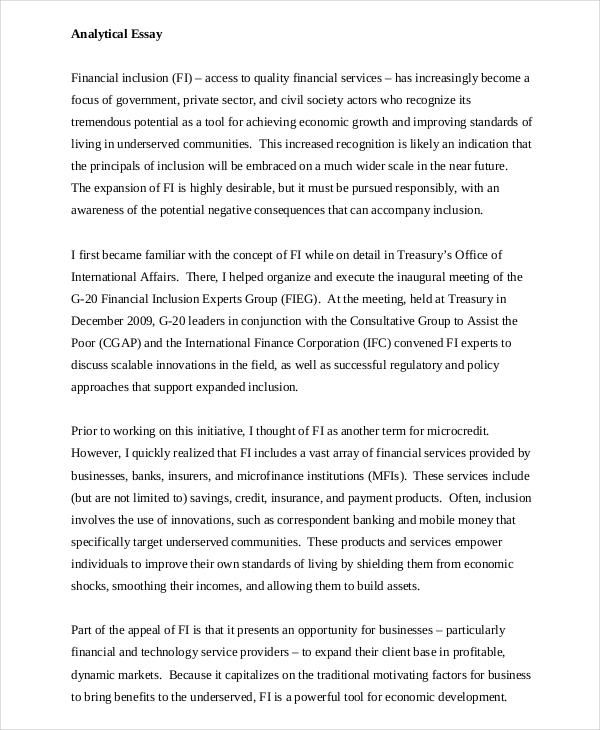
Free Comparative Example
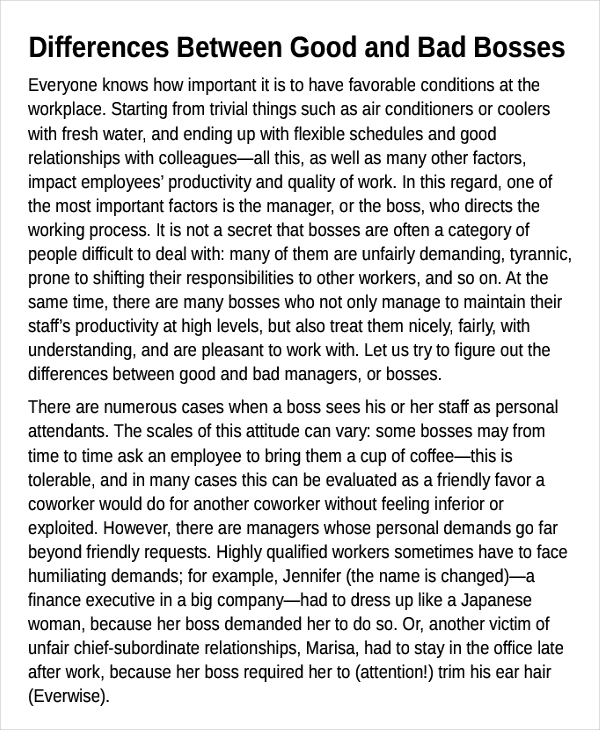
Dialogue Essay
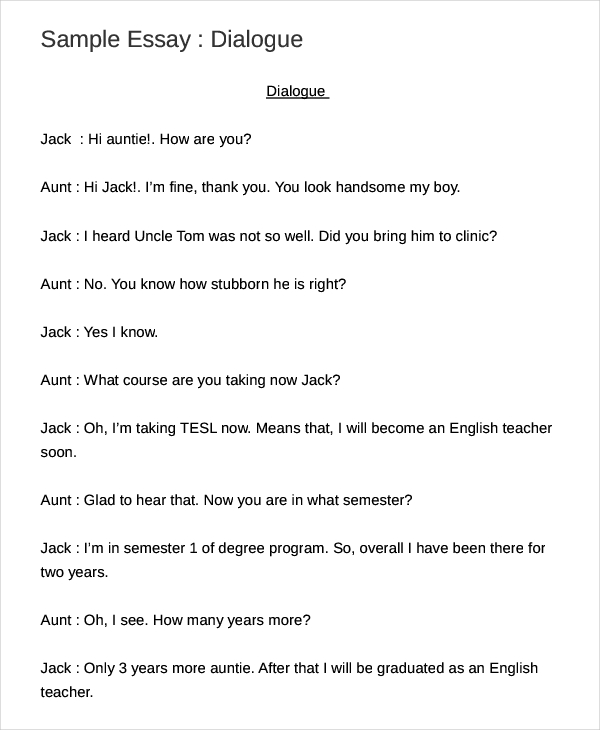
Free Economics Sample
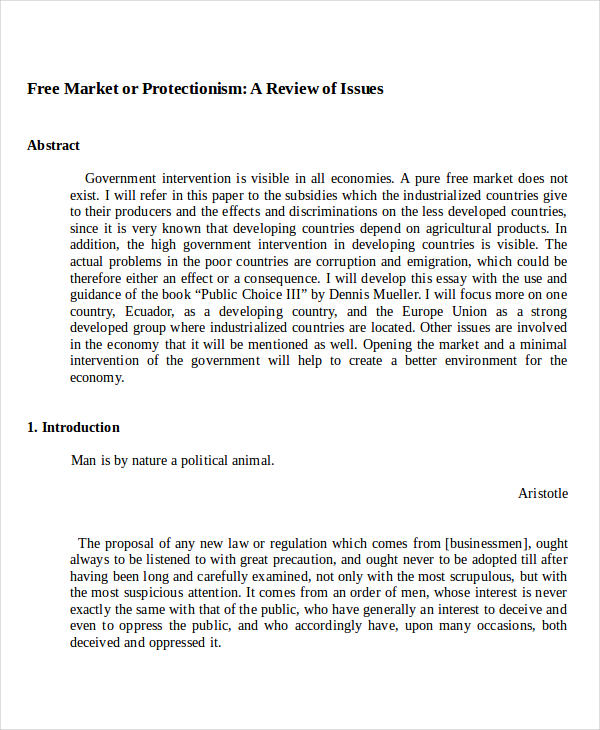
Free Expository
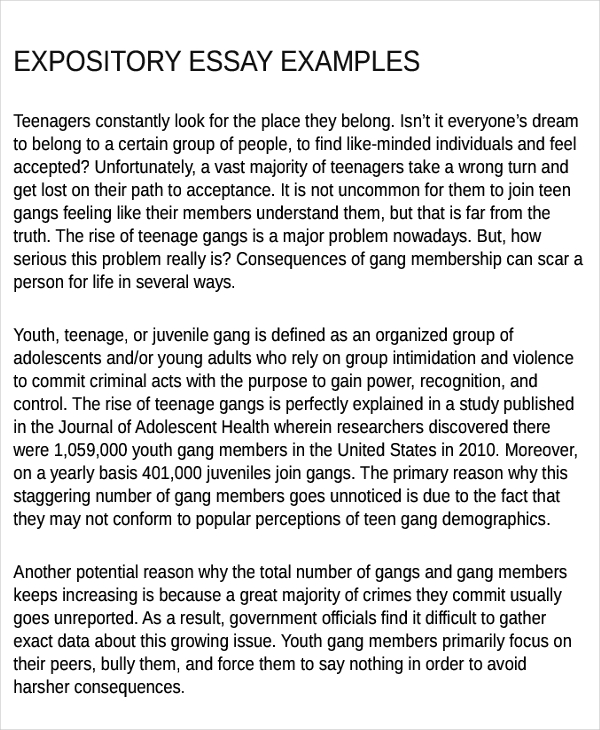
Exploratory Example
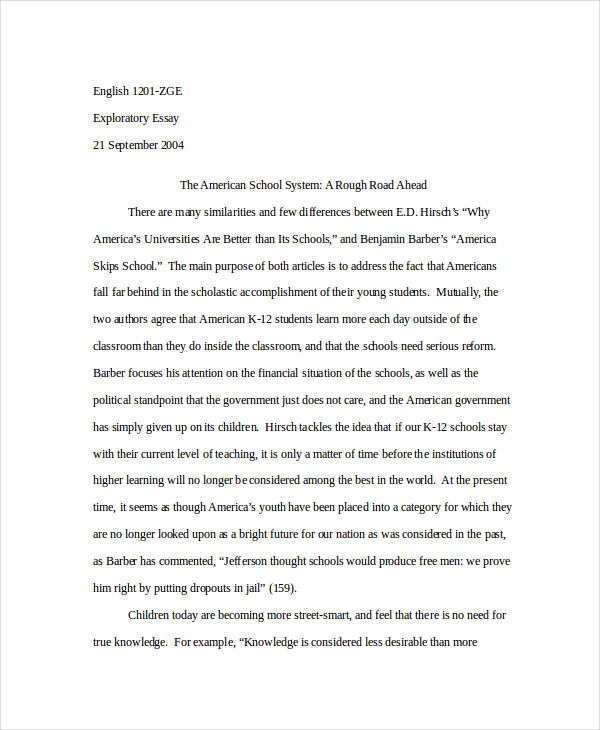
Informative Essay
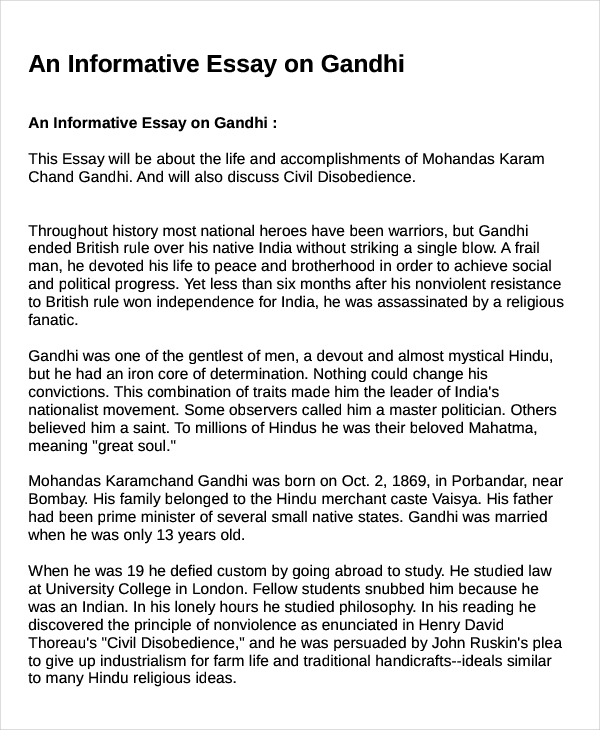
Free Leadership
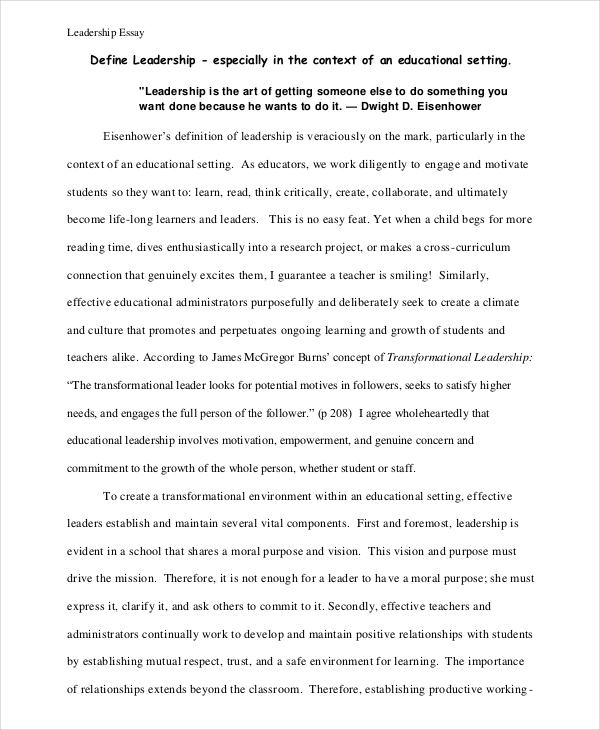
Marketing Example
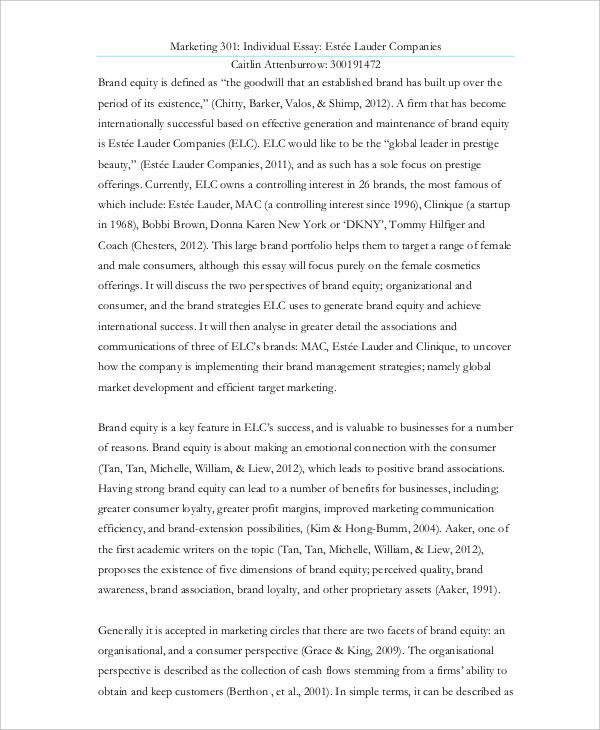
Nursing Essay
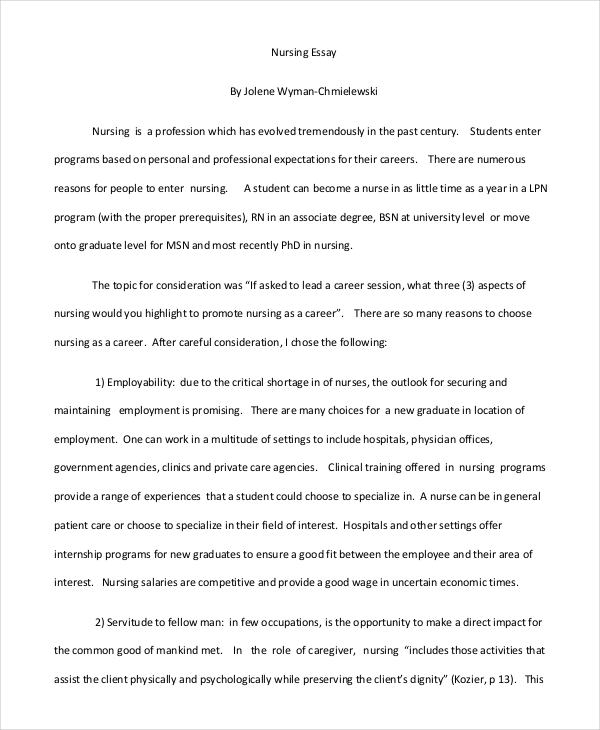
Free Persuasive Sample
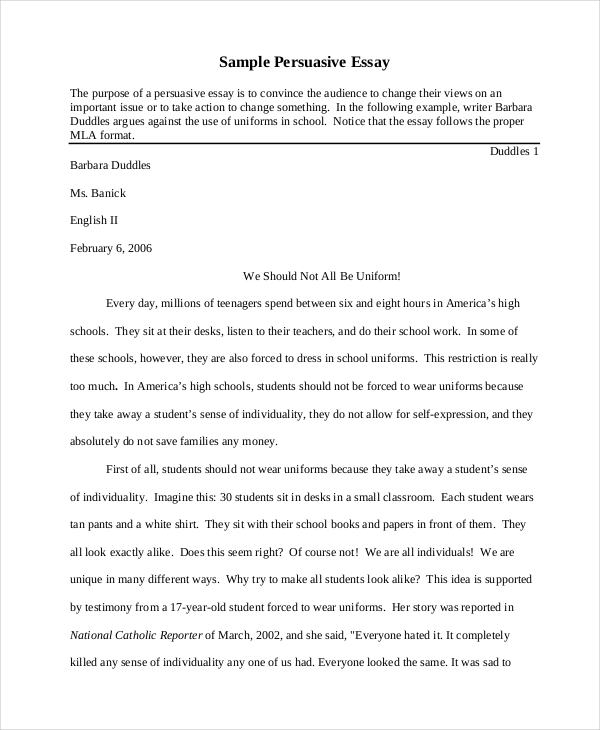
Process Essay Example
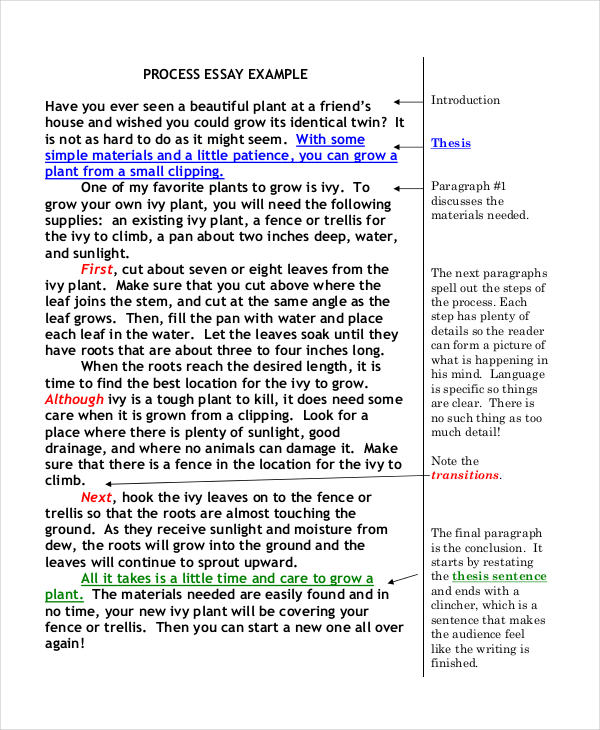
Scholarship Essay

Different Kinds of Essays
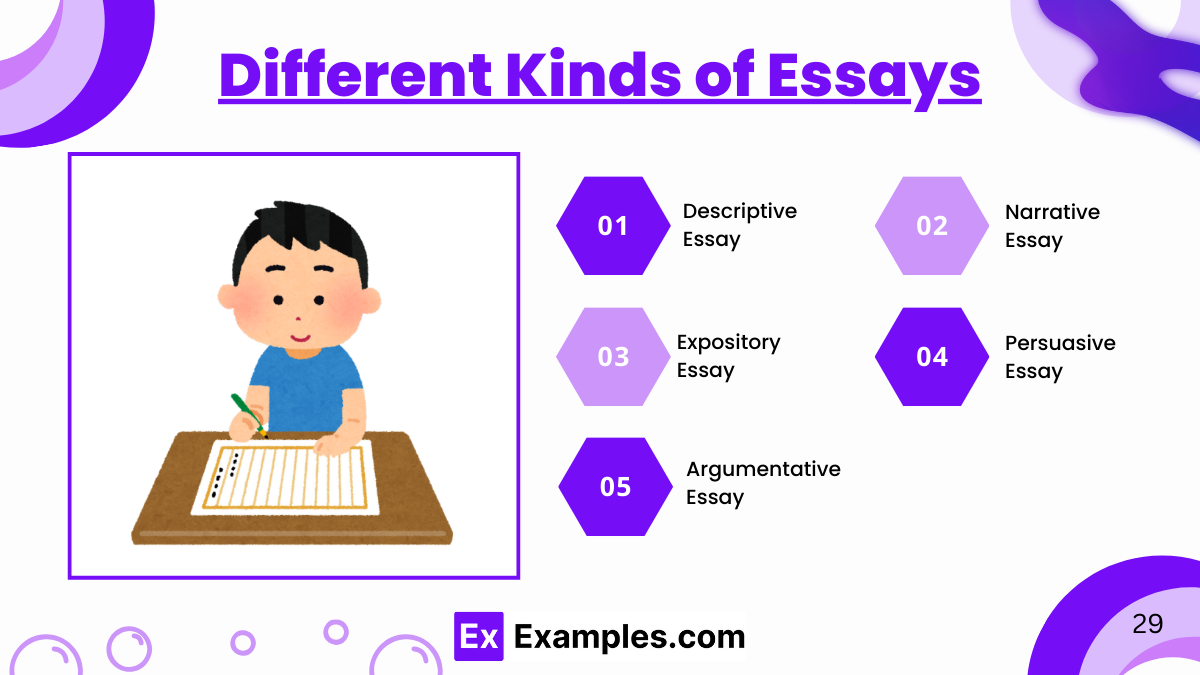
- Descriptive Essay
A descriptive essay focuses on vividly describing a person, place, object, or event. It uses sensory details to create a clear and engaging picture for the reader, often appealing to emotions and imagination. - Narrative Essay
A narrative essay tells a story or recounts a personal experience. It is written in a way that engages the reader by presenting a clear sequence of events, often with a beginning, middle, and end. - Expository Essay
An expository essay aims to explain or inform about a specific topic. It provides clear facts, logical explanations, and evidence, avoiding personal opinions or emotions. - Persuasive Essay
A persuasive essay seeks to convince the reader of a particular viewpoint or to take a specific action. It uses logical arguments, credible evidence, and sometimes emotional appeals to sway the audience. - Argumentative Essay
An argumentative essay presents both sides of a controversial issue. It uses well-researched evidence and logical reasoning to support a specific stance while addressing counterarguments.
How to Write a Free Essay
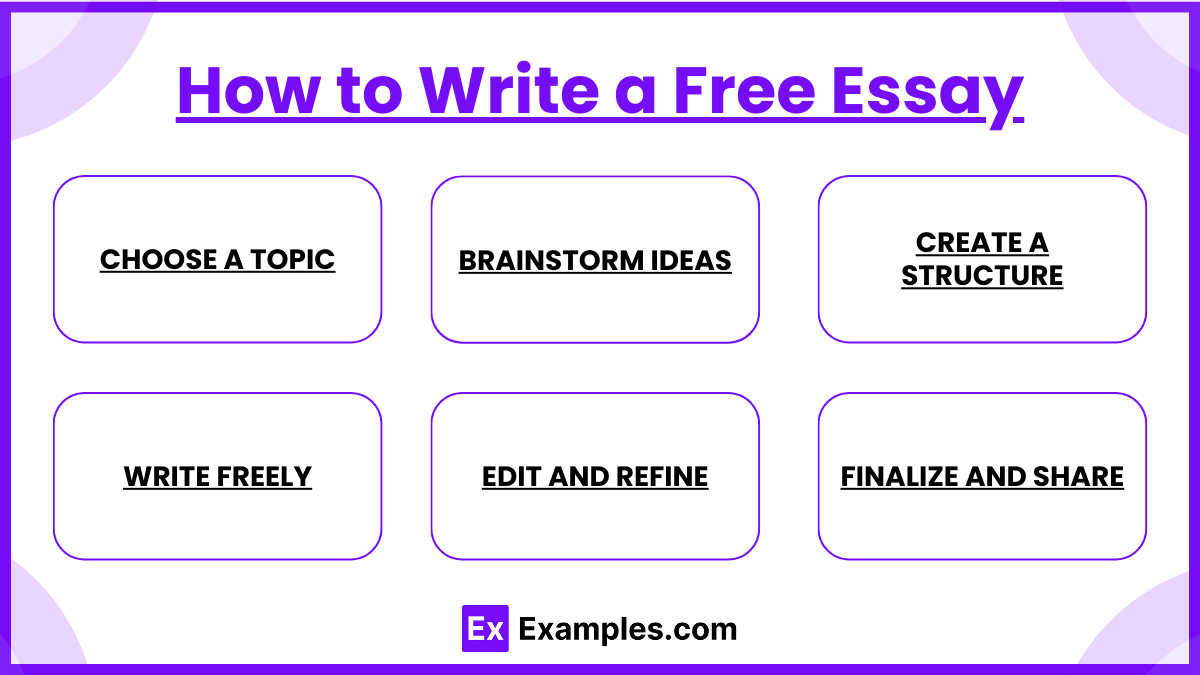
- Choose a Topic
Select a subject you’re passionate about or interested in exploring. - Brainstorm Ideas
Jot down thoughts, key points, or arguments you want to include in the essay. - Create a Structure
Outline your essay with an introduction, body paragraphs, and a conclusion. - Write Freely
Express your ideas without worrying about strict guidelines or rules. Focus on creativity and originality. - Edit and Refine
Review your essay for clarity, grammar, and flow. Ensure your points are well-organized and impactful. - Finalize and Share
Make final adjustments and share your essay with confidence.
FAQs
Where can I find free essays online?
Free essays are available on educational websites, writing platforms, and online libraries.
Can I use a free essay for my assignment?
You can use it as a reference or inspiration but avoid direct copying to maintain originality.
Are free essays reliable?
The reliability depends on the source; always cross-check facts and ensure proper citation.
How do I write a free essay?
Choose a topic, structure your ideas, and focus on expressing thoughts freely without strict guidelines.
Why are free essays important?
Free essays promote creative thinking, allow for diverse perspectives, and serve as valuable tools for learning and inspiration.



